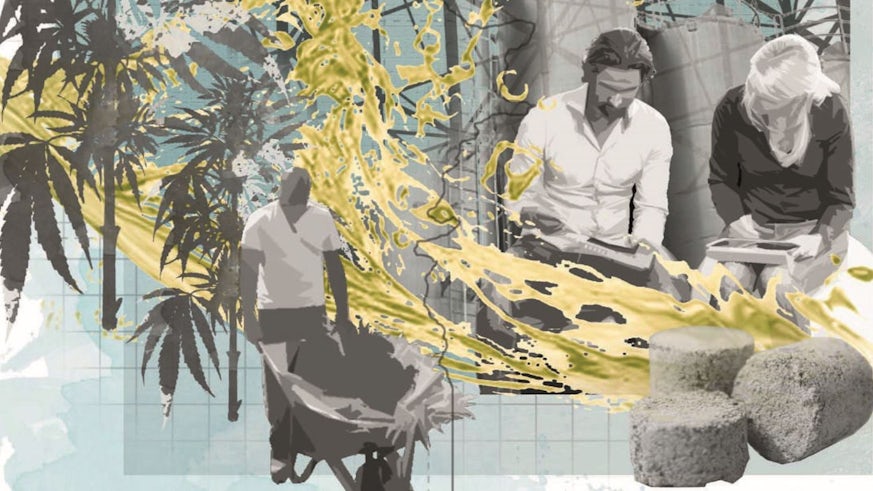Architecture students put water first in their final year projects
28 August 2019

A group of BSc students from the School of Architecture focused their final projects around water, one of Wales’ most precious resources, using the Elan Valley as their case study.
Dr Marga Munar Bauza, Unit Leader, wanted to emphasize on Wales and the Elan Valley’s richness this year. She said: ‘Mid Wales enjoys healthy rainfall levels, enough to provide fresh water to many people. The dams that were built in the Elan Valley at the end of the 19th Century still supply up to 360 million litres a day to Birmingham.
‘However, despite its richness of water, landscape and culture, Mid Wales has been left with scarred and deprived communities after the closure of the mining industry’.
Her proposal was to examine water as a resource able to create and redevelop the local economy and improve social cohesion.
Students took different perspectives on the topic, going beyond the use of water of part of building development. Considering the “Well-being of Future Generations (Wales) Act”, water could be approached as an element, an enabler and a source of conflict. Social and political contexts were widely studied and gave birth to a range of diverse projects.
Megan Thacker-Brooks looked at her water footprint before starting to work on her project. She found out that, as a vegetarian, her embedded water consumption was much lower than an average meat eater. This became one of the pillars of her project. Looking at the soil quality and at the traditional agricultural activities within the Elan Valley, Megan decided to develop a ‘central agriculture hub’ to reduce the environmental impact of local sheep farming and to encourage polyculture in the region.
‘The project forced me to question some of my own preconceived ideas about water in agriculture and even reconsider some personal dietary choices’
She says: ‘My research initially evolved out of a concern for the source of water that was embodied in our food and the resultant effect of agriculture (most predominantly sheep farming!) on the landscape and waterscape of Mid-Wales.
‘The final outcome of the project was a centre of Agricultural Innovation based in Aberystwyth, which aimed to create a localised food production system that would provide consumers with a direct awareness of where their daily produce has come from, how much water is needed to produce it and who has produced it’.
The main hub acts as a microcosm for the food industry containing an agriculture research centre, a polyculture farm and a market. It aims at engaging farmers in the conversation about modern agriculture while increasing the transparency about the food production process and diverting the attention from land-based agriculture to more controlled urban setting.

Harian Edwards looked at water as a source of conflict, but with a positive outlook on boundaries. She used the relationship between Wales and Birmingham as a case study to develop a circular process of exchanges.
Harian says: ‘Mid-Wales exports a pure produce and in return imports an impure produce from Birmingham. This impure produce can be used to manufacture a product in demand.
‘Based on research from Cape Town University, I found that imported urine could be used to manufacture bio-bricks. Their by-product, a natural fertilizer, could also help grow hemp and produce cannabidiol oil, known to relieve pain and reduce anxiety and depression.
Through her project, Harian developed plans for a facility, located in the Elan Valley that would collect and reuse the water sent to Birmingham.

A new cohort of BSc students will continue to work around the topic of water over the next academic year. Find out more about how to help and get involved by contacting Dr Marga Munar Bauza or Cardiff Water Research Institute.

